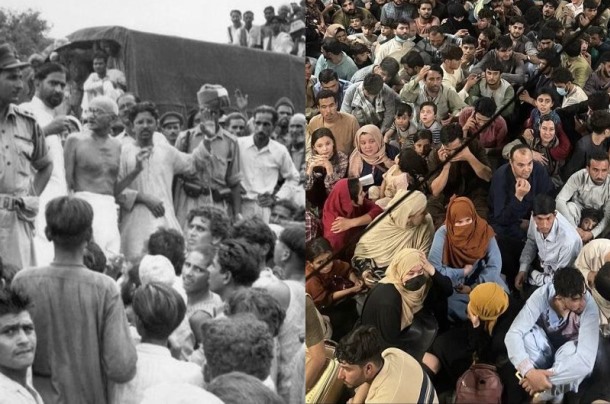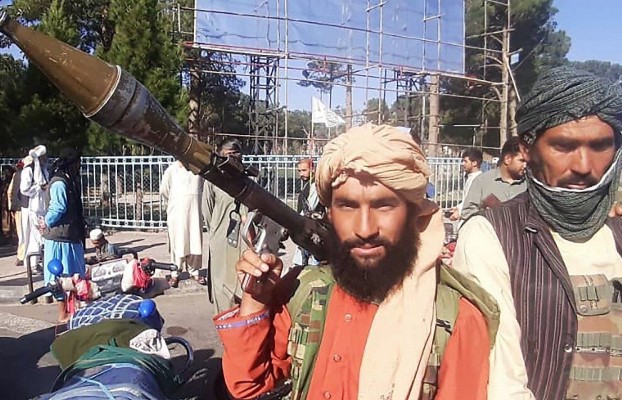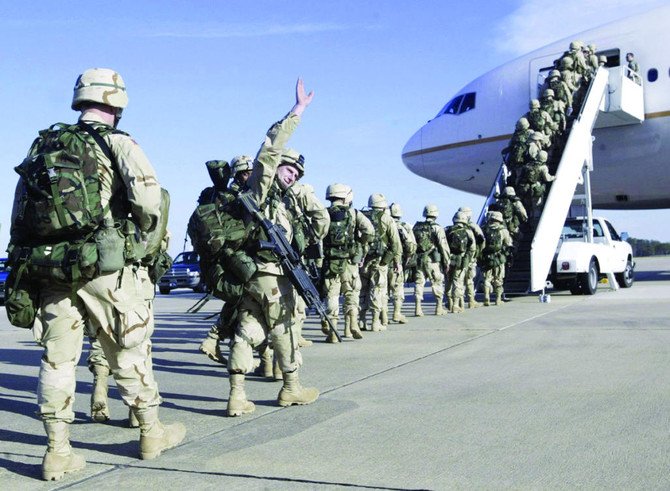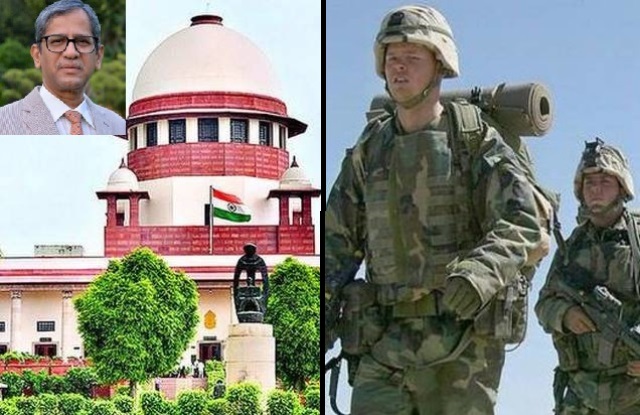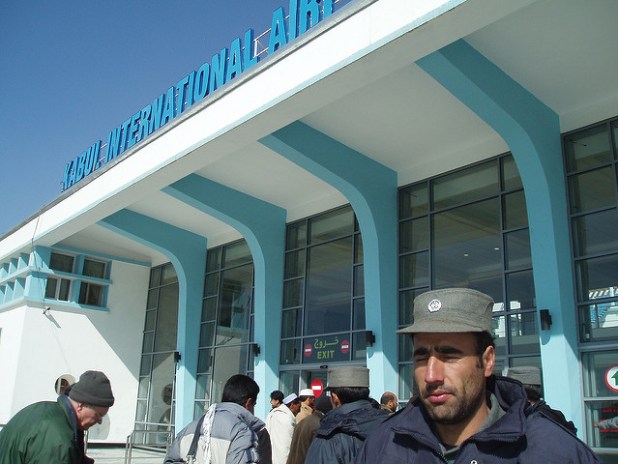Only a free and unrestrained Press can effectively expose deception in government. And paramount among the responsibilities of a free Press is the duty to prevent any part of the government from deceiving the people and sending them off to distant lands to die of foreign fevers and foreign shot and shell.
— US Supreme Court Justice Hugo L. Black, in his concurring opinion in New York Times Co. V. United States, also known as the Pentagon Papers Case, June 30, 1971.
Two weeks after the 9/11 terrorist attacks on the twin towers at the World Trade Centre in New York, a reporter asked a “straightforward” question to Defense Secretary Donald Rumsfeld at the Pentagon briefing room in Arlington, Washington DC, while “the building still smelled of smoke and jet fuel from when American Airlines Flight 77 exploded into the west wall, killing 189 people…”
The question: “Would US officials lie to the news media about military operations in order to mislead the enemy?”
In response, Rumsfeld paraphrased a quotation from Winston Churchill: “In wartime, truth is so precious that she should always be attended by a bodyguard of lies.” He explained how the Allies, prior to D-Day, ran a disinformation campaign called ‘Operation Bodyguard’ to ‘confuse’ the Germans about when and where the invasion of western Europe would take place in 1944. He thereby replied: “The answer to your question is, no, I cannot imagine a situation. I don’t recall that I’ve ever lied to the Press. I don’t intend to, and it seems to me that there will not be reason for it. There are dozens of ways to avoid having to put yourself in a position where you’re lying. And I don’t do it.”
Two years later, Rumsfeld might have forgotten his self-righteous statement. In what are called ‘snowflakes’ by his staff, among hundreds of classified memos, “comments or instructions” dictated by him between 2001 and 2006 “to his underlings”, one says almost two years after the ‘war’ started: “I have no visibility into who the bad guys are in Afghanistan.” This was a complaint made by Rumsfeld to his intelligence chief.
His successor, Robert Gates, went one step further: “We don’t know the jack shit about Al-Qaeda,” he is reported to have said
If there was a ‘Big Botch-Up’ in Kabul with Joe Biden at the helm recently, the war in Afghanistan is like an endless serial opera of morbid ‘Botch-Ups’ and ‘Goof-Ups’ at the highest levels across the American establishment, and its formidable war apparatus. The war strategy had gone all wrong, the nation-building rhetoric was fake, and drugs and corruption had become entrenched in the Kabul establishment. And all this ‘jack shit’ happened under the watch of successive presidents: George W Bush, Barack Obama, Donald Trump.
In what is clearly a journalistic bombshell, perhaps as big as the ‘Pentagon Papers’ on Vietnam and the Watergate Scandal with its Deep Throat, Washington Post and its seasoned investigative reporter, has exposed, in a 346 page hardback, chapter after chapter of highly volatile disclosures, which will be highly embarrassing and shocking for the US establishment and its civil society. ‘The Afghanistan Papers: A Secret History of the War’ by Craig Whitlock, published by Simon And Schuster, is a big story, a big breaking news investigation, first revealed in parts by The Washington Post in 2019. The book was globally launched on August 31, 2021.
ALSO READ: ‘Mullah Baradar, Anas Haqqani Fought Over Panjshir Issue’
A seasoned journalist, Whitlock worked for seven years as a beat reporter covering the Pentagon and the US military for The Washington Post. He has covered four secretaries of defense and five war commanders, traveling with the top military brass to Afghanistan and around the neighbourhood many times. Earlier to that, he was on the ground for six years as a Washington Post foreign correspondent, reporting on terrorist groups, including Al-Qaeda, in Afghanistan, Pakistan, the Middle-East, North Africa and Europe. He has been a three-time ‘finalist’ for the Pulitzer Prize.
Says Barbara Starr, CNN Pentagon correspondent, “The Afghanistan Papers is a gripping account of why the war in Afghanistan lasted so long. The missed opportunities, the outright mistakes, and more than anything, the first-hand accounts from senior commanders, who only years later acknowledged they simply did not tell the American people what they knew about how the war going.”
“Craig Whitlock has forged a searing indictment of the deceit, blunders, and hubris of senior military and civilian officials, with the same tragic echoes of the Vietnam conflict. The American dead, wounded, and their families, deserved wiser and more honourable leaders,” said Tom Bowman, Pentagon correspondent of the National Public Radio.
“Like many journalists, I knew Afghanistan was a mess,” writes Whitlock. “I had grown dismissive of the US military’s hollow statements that it was always making progress and on the right track. The Washington Post and other news organizations had exposed systemic problems with the war for years… But I wondered if everyone had missed the big picture. How had the war degenerated into a stalemate with no realistic prospect for an enduring victory? The US and its allies had initially crushed the Taliban and Al-Qaeda in 2001. What went wrong?”
He writes, “Unlike the war in Vietnam, or the one that would erupt in Iraq in 2003, the decision to take military action against Afghanistan was grounded in near-unanimous public support. The United Nations Security Council unanimously condemned the ‘horrifying terrorist attacks’ and called on all countries to bring the perpetrators to justice. Even hostile powers expressed solidarity with the US. In Iran, thousands attended candlelight vigils and hardliners stopped shouting ‘Death to America’ at weekly prayers for the first time in 22 years. With such strong backing, US officials had no need to lie or spin to justify the war. Yet, leaders at the White House, the Pentagon and the State Department soon began to make false assurances and to paper over setbacks on the battlefield… From Washington to Kabul, an unspoken conspiracy to mask the truth took hold…”
ALSO READ: Future Of Afghanistan
Over the years, despite delayed responses and official obstacles, Whitlock obtained thousands of classified, secret and unpublished documents, testimonies, interviews, oral and written evidence. They are a damning indictment of the American top brass, including revealed by those who were themselves big players in this war machine which killed thousands, including civilians, across the tragic spectrum.
In a startling exposure, documents unearthed by The Washington Post reveal that George W Bush did not even know the name of his war commander in Afghanistan! He, apparently, did not want to make time to meet with him.
The Afghan war cost reportedly $1 trillion or more in the 20 years of total mismanagement and organized corruption. More than 775,000 American troops were deployed. Generals have admitted that they fought the war without a functional strategy: “There was no campaign plan. It just wasn’t there,” complained Army Gen. Dan McNeill. He was the US commander twice during the Bush administration.
Other officials disclosed that the US “flubbed the war from the start”. “We did not know what we were doing,” said Richard Boucher, Bush administration’s top diplomat for South and Central Asia. “We didn’t have the foggiest notion of what we were undertaking,” said Army Lt. Gen. Douglas Lute, White House war czar under Bush and Obama.
“Lute lamented that so many US troops had lost their lives. But, in a shocking departure from convention for a three-star general, he went further and suggested that the government had squandered those sacrifices…” writes Whitlock in the foreword.
“If the American people knew the magnitude of this dysfunction, 2,400 lives lost,” Lute said, “Who will say this was in vain?”



